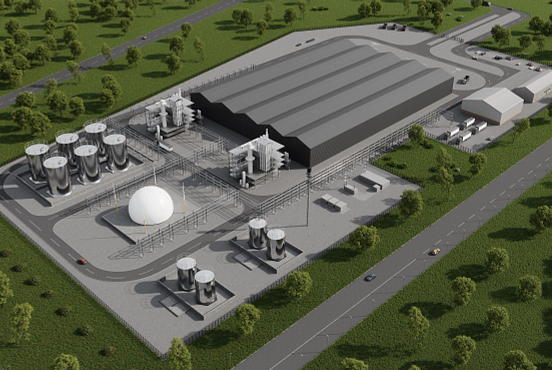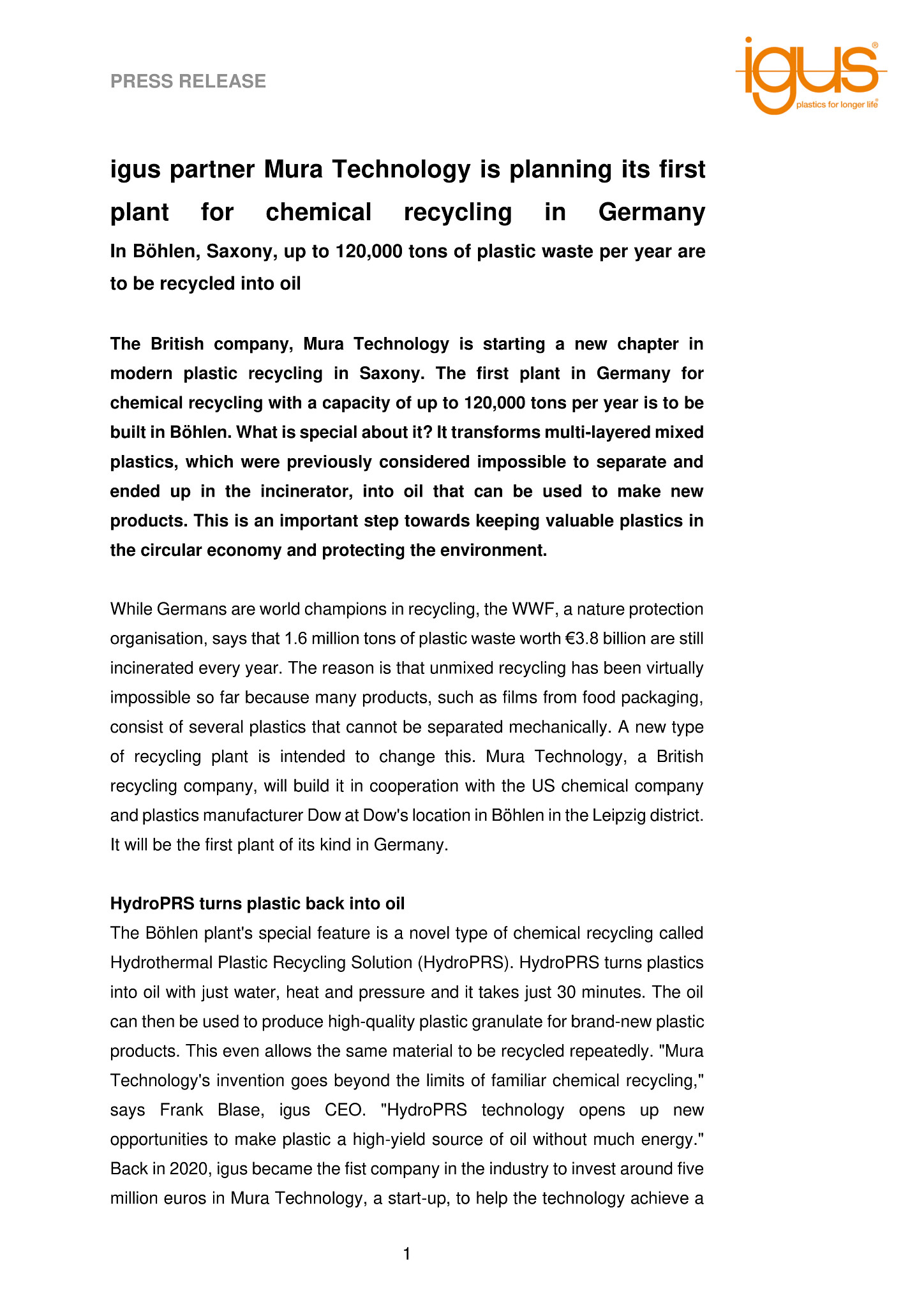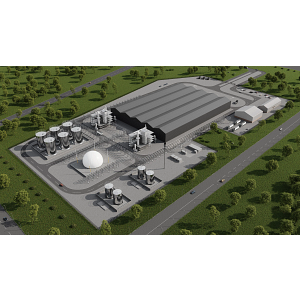igus partner Mura Technology is planning its first plant for chemical recycling in Germany
October 31, 2022
In Böhlen, Saxony, up to 120,000 tons of plastic waste per year are to be recycled into oil

The British company, Mura Technology is starting a new chapter in modern plastic recycling in Saxony. The first plant in Germany for chemical recycling with a capacity of up to 120,000 tons per year is to be built in Böhlen. What is special about it? It transforms multi-layered mixed plastics, which were previously considered impossible to separate and ended up in the incinerator, into oil that can be used to make new products. This is an important step towards keeping valuable plastics in the circular economy and protecting the environment.
While Germans are world champions in recycling, the WWF, a nature protection organisation, says that 1.6 million tons of plastic waste worth €3.8 billion are still incinerated every year. The reason is that unmixed recycling has been virtually impossible so far because many products, such as films from food packaging, consist of several plastics that cannot be separated mechanically. A new type of recycling plant is intended to change this. Mura Technology, a British recycling company, will build it in cooperation with the US chemical company and plastics manufacturer Dow at Dow’s location in Böhlen in the Leipzig district. It will be the first plant of its kind in Germany.
HydroPRS turns plastic back into oil
The Böhlen plant’s special feature is a novel type of chemical recycling called Hydrothermal Plastic Recycling Solution (HydroPRS). HydroPRS turns plastics into oil with just water, heat and pressure and it takes just 30 minutes. The oil can then be used to produce high-quality plastic granulate for brand-new plastic products. This even allows the same material to be recycled repeatedly. “Mura Technology’s invention goes beyond the limits of familiar chemical recycling,” says Frank Blase, igus CEO. “HydroPRS technology opens up new opportunities to make plastic a high-yield source of oil without much energy.” Back in 2020, igus became the fist company in the industry to invest around five million euros in Mura Technology, a start-up, to help the technology achieve a breakthrough. About a year and a half later, KBR, a leading international supplier of scientific, technological and engineering solutions also became a partner. Now there are other partners, including Dow, Chevron Phillips Chemical and LG Chemical. Mura also recently received an additional strategic investment from Dow to further develop additional HydroPRS plants in the US and Europe. The partnership aims to create 600,000 more tons of recycling capacity by 2030.
Plastic recycling plant with a capacity of 120,000 tons per year
Construction on the plastic recycling plant in Böhlen is to begin in 2023 with the plant expected to start operating in 2025. Its recycling capacity is around 120,000 tons of plastic per year. More plants will be built around the world – in Asia, the US and England. Mura Technology is currently setting up the first commercial HydroPRS plant in Teeside in the north-east of England. It will go into operation in the first half of 2023 and recycle more than 24,000 tons of plastic each year. All plants worldwide are expected to reach an annual capacity of 100,000,000 tons by 2030.
igus drives the plastics circular economy forward
igus has been supporting Mura Technology’s recycling innovation since its initial phase because the motion plastics specialist’s stated goal is to promote the plastics circular economy. Mechanical recycling has been established for more than 50 years. The company uses 99% of the plastic waste generated in production as new granulate for injection-moulding machines. In 2019, igus also launched chainge, a recycling programme for worn-out energy chains. In 2022, the world’s first energy chain was created entirely from recycled material, as was a plain bearing range made from regranulated production waste. With its partner mtrl, igus is also developing a solid plastic bicycle for urban mobility, the frame and wheels of which can be made from plastic waste. Plastic waste in landfills around the world can therefore be transformed into a valuable resource.



